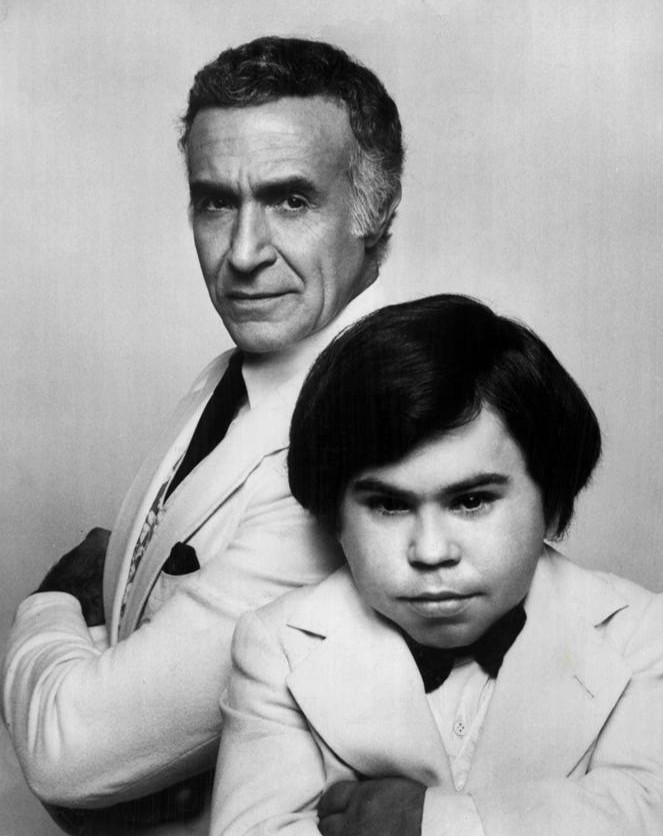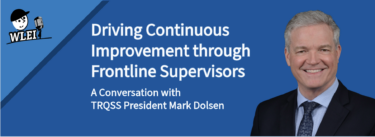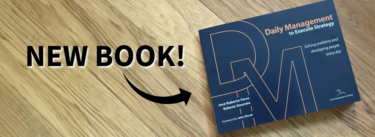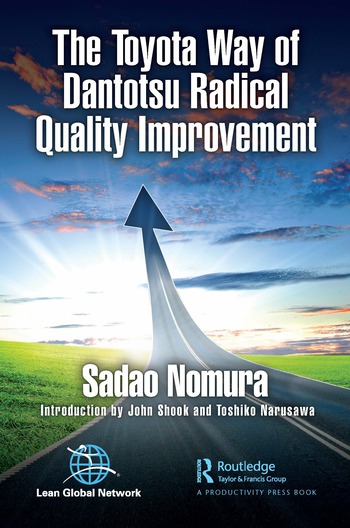 If you were an executive and had the opportunity to land on Fantasy Island, what would your fantasy be? Would it be to instantly create an environment of empowered problem solvers working towards a common goal fueled by good leadership? Would Tattoo and Mr. Roark be there encouraging leadership to spend the majority of their time at the gemba? Would you know the secret to a Lean culture? How would it all play out?
If you were an executive and had the opportunity to land on Fantasy Island, what would your fantasy be? Would it be to instantly create an environment of empowered problem solvers working towards a common goal fueled by good leadership? Would Tattoo and Mr. Roark be there encouraging leadership to spend the majority of their time at the gemba? Would you know the secret to a Lean culture? How would it all play out?
I often bring this up in my workshops and coaching sessions to remind executives to think deeply about this concept of “infrastructure,” as in the infrastructure behind the culture we want to articulate and create so badly. Think of it as looking at a computer screen and being able to make sense of what you see there. To see the screen there must be “systems” running in the background, functioning properly. Culture is no different.
So what is the infrastructure behind the culture in a truly lean organization? To summarize, it should have several key components:
Values and Principles – A company needs a solid foundation that acts as a mission or vision that leaders can translate to tangible actions. These are actions they can bring to life within their daily work. Two important values and/or principles I was taught at Toyota were Go and See and Respect for people. “Go and See” translated to “being at the gemba” and “Respect for People” meant developing people’s ability to think and ask why, and making sure everyone was trained to see abnormality as process owners. These values enabled leaders to involve, challenge, and engage people to begin to see waste in their work processes and then improve those processes.
Actions and Habits – When leaders tell me it isn’t easy to change the ways of their workers, I ask them where is your “DnA”? In order for an organization attempting to embed lean thinking to have any chance of succeeding, there must be a level of discipline and accountability for the actions of all team members at all levels and across all function areas. This is where values and principles play an essential role in slowly changing a culture. I grew up practicing the Toyota Way, this system of thinking was the guiding beacon that gave us the line of sight to business goals, so I know how it can help people and organizations do great work. Without it, daily actions are chaotic. And in response to chaos, most people then become reactive in their behavior, which only creates a culture of reactivity, stress, and regress.
I became a believer when I witnessed first-hand how the pure essence of these tangible actions can make or break a successful lean implementation. If you can envision a slew of trainers very eager to teach, guide, and coach individuals who all want to learn, do well, and advance in their organization, but find there to be a barrier… say, they are unable to totally speak your language, what do you do? You adapt and find a way.
This was how I was taught at Toyota. There wasn’t a set of tools to use, or a book to follow, or lessons written down for us to read. We watched, failed, learned, and became empowered through the actions of our trainers. Our learning was about observation, documentation, asking questions, getting involved, and involving others. That’s where I found the key to success resided. I didn’t need to be told this in words either, I needed to experience it. I think this experiential quality, simply putting in the time, is the missing piece for many practitioners. We can’t just talk about lean thinking, we have to practice it. I think how we define “doing” is the key to unlocking the DnA code.
Character and Destiny – Lastly, if these first two things take hold, you may find that your fantasy organization may just become a reality in time. There is no destination in Lean, it’s an evolving process. We all, including myself, want to embed lean thinking within our own character in order to be the kinds of leaders we need to be. I strive to be a leader who has skills that can be learned and replicated by others. And this is the kind of leadership I want to develop in others. Good lean leaders share wisdom, learning, and a way of thinking because we want this type of thinking to cascade down throughout the organization. They strive to build the problem-solving capability and character of all team members, each individual they come in contact with on a daily basis. It all starts with values and principles that lead to actions and habits which pave the path to changing the character and destiny of your organization. I truly believe a leader should lead as if they have no power, instead empowering workers to always seek to understand wasteful action, ask why, and solve problems. As a wise trainer once told me, “problems solved = job security.” As a leader, you are responsible for both!






